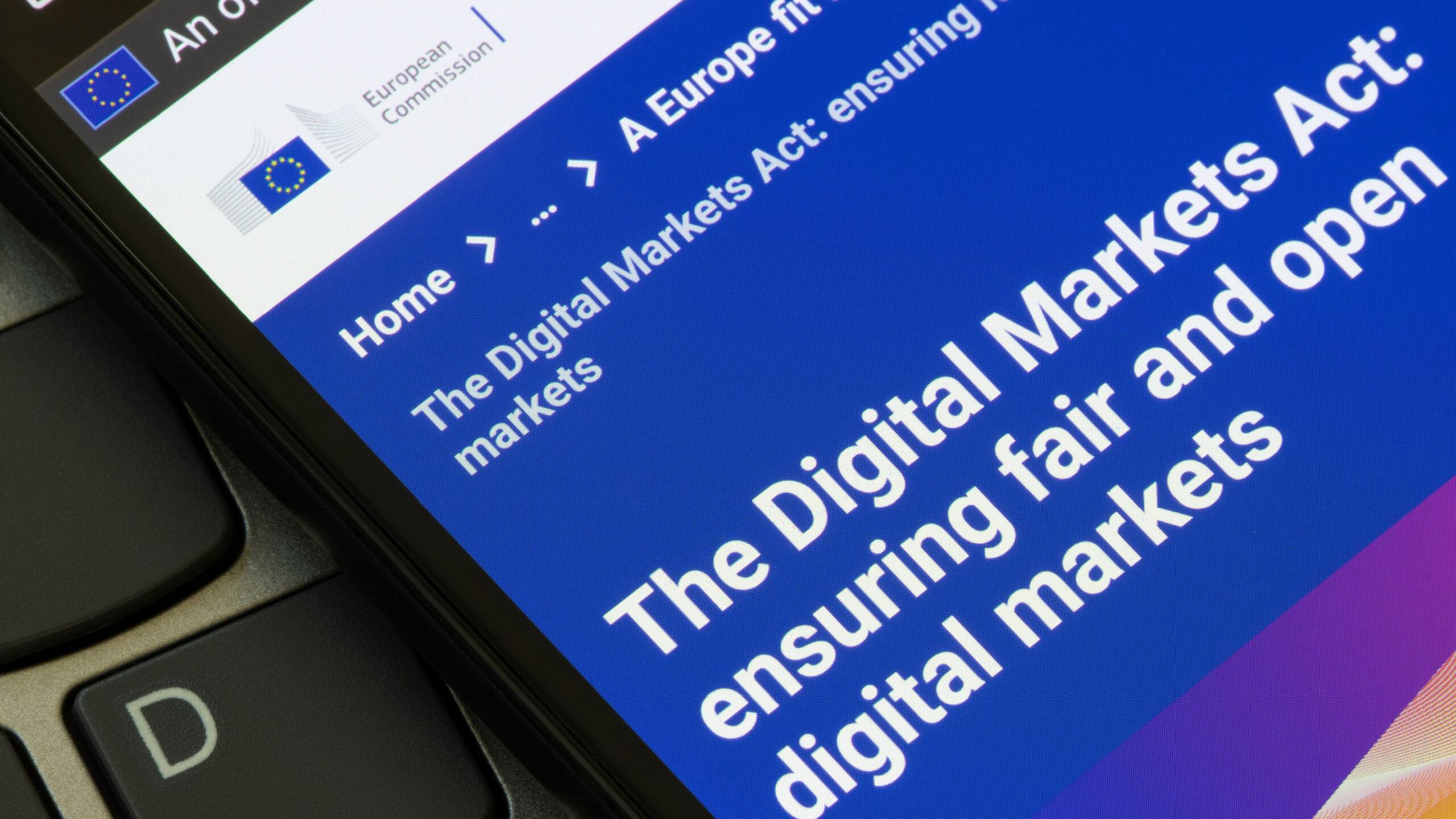ICYMI: Does the Digital Markets Act Increase Legal Risks for Non-Gatekeeper Platforms?

Earlier this month, on 9 February 2022, King & Spalding’s EU Competition team hosted a webinar to present their newest paper “The Digital Markets Act’s Per Se Prohibitions Increase Legal Risks for Non-Gatekeeper Platforms”. A panel discussion followed, with experts Christopher Yook, King and Spalding, Benedikt Blomeyer-Bartenstein, Allied for Startups and Gareth Shier, Oxera Consulting, moderated by Dr. Salomé Cisnal de Ugarte, King and Spalding. A recording of the event can be found here.
The paper in a nutshell
The paper’s main finding is that, regardless of the economic thresholds of the Digital Markets Act (DMA), the per se nature of the obligations and the related language of the DMA creates a presumption of harm that will spill-over onto non-gatekeeper platforms through other areas of law (particularly, national competition law and laws on the abuse of economic dependence). Recent amendments which attempt to exclude non-gatekeepers would not prevent these other bodies of law from applying. As a result, even non-gatekeeper platforms will ultimately have to follow the DMA’s conduct rules, leading to diminished innovation and competition in Europe’s digital economy.
The notion of fairness
The paper found that the DMA relies excessively on the notion of fairness and presumes that the behaviours it targets are inherently harmful and unfair. However, the behaviours have not been proven to be harmful and many of them can be pro-competitive. The 2019 expert report of the Commission outlined how certain behaviours prohibited by the DMA, such as self-preferencing, are not always harmful, and should be subject to case-by-case analysis and examination. This is a recommendation that the Commission ignored.
Gareth Shier noted how specific conditions of the market matter for analysing the effects of platform conduct. ‘’It would be a leap to say all behaviours [prohibited by the DMA] are harmful’’, he added. Shier concluded saying that the one-size-fits-all approach of the DMA may increase short-term competitiveness in some respects, but could prevent platforms from creating value and innovating in the long-term. In this respect, the DMA needs a more effects-based assessment, and to avoid the per se approach.
Christopher Yook emphasised his concerns surrounding the lack of a “safety valve” for the DMA. He explained how the U.S. has two ways to define competition legislation: rule of reason, where a court weighs the pro-competitive benefits against the harms, and per se rules, where behaviour is illegal regardless of its effects. The DMA more closely resembles the latter, and while U.S. Courts are careful in applying per se treatment only to the most egregious practices, this caution has been absent from the DMA. Given the per se nature of the DMA, companies that engage in similar conduct, regardless of size, would be advised to make changes to business structures and behaviours that would be deemed as per se harmful under the DMA.
Chilling effects on innovation
Benedikt Blomeyer-Bartenstein outlined his support for the DMA, but noted that many SMEs and start-ups scale up in an interconnected ecosystem and are both users and competitors of large online platforms. Blomeyer-Bartenstein also said that both startups and European policy makers want European startups to grow, but highlighted his concerns that these startups will have to consider the DMA and its potential impact on their businesses. As Christoper Yook had highlighted previously, startups might need to change their business structures long before approaching the economic thresholds that would risk “gatekeeper” designation.
Concluding Remarks: Proportionality and dialogue
As the panel discussion came to an end, the attention turned to how the proposal could be improved to make it work for everyone – businesses, consumers, and enforcers.
The focus was again on the impact on startups, as Gareth Shier underlined the risks that investors might not be interested in European startups due to the risks of the DMA if they are successful. Shier also warned that companies could trim more unprofitable users in order not to conform to the DMA and that due to the prescriptiveness of the proposal, companies will have fewer options to grow and deliver innovative services. Benedikt Blomeyer-Bartenstein concluded by saying the rules are too broad and that a regulatory dialogue would be beneficial.
Finally, Christopher Yook said that the proportionality of the DMA could be improved through regulatory dialogue. Panellists agreed that amendments to the DMA should clarify that the conduct prohibited by the DMA is not always harmful and should not be treated as such.








